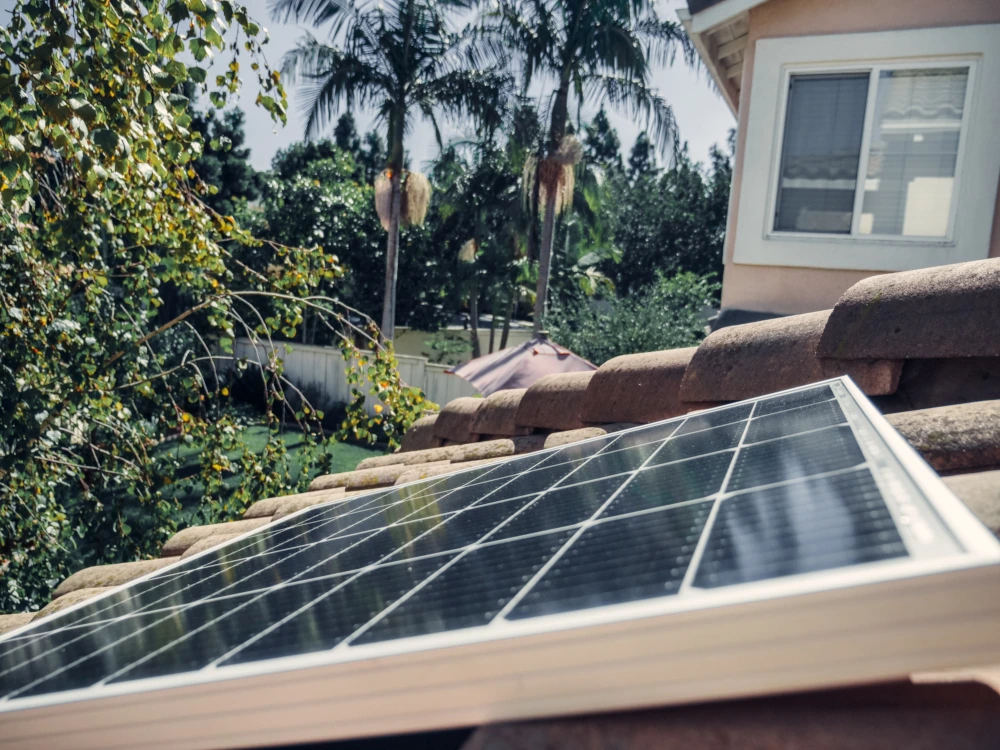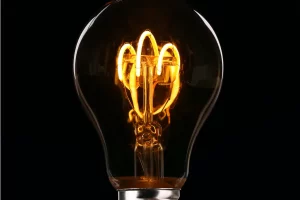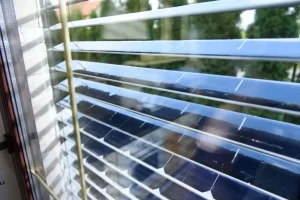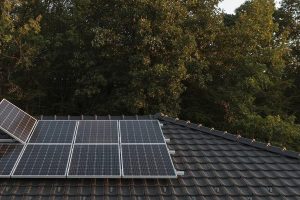Taking care of solar panels involves several key practices to ensure their optimal performance and longevity. Today we will discuss why and how you need to take care of solar panels to maximize profitability and lifespan of your investment. Here you’ll find solar panel maintenance checklist, and some theory around it.

Why do you need to maintain your solar panels
Maintaining solar panels is crucial for several reasons:
- Optimal performance. Regular maintenance helps ensure that solar panels operate at their highest efficiency. Dust, dirt, debris, or shading can reduce the amount of sunlight reaching the panels, resulting in decreased power output. By keeping the panels clean and free from obstructions, you maximize their ability to convert sunlight into electricity.
- Longevity. Proper maintenance helps extend the lifespan of solar panels. By promptly addressing any issues or damage, you can prevent further deterioration that may lead to costly repairs or even the need for panel replacement. Well-maintained panels can continue to generate electricity for many years, providing a higher return on your investment.
- Safety. Maintaining solar panels contributes to a safe operating environment. Regular inspections and checks ensure that all electrical connections are secure and free from damage, reducing the risk of electrical hazards such as short circuits or fires.
- Warranty compliance. Solar panel manufacturers often provide warranties that cover defects and performance guarantees for a specific period. Adhering to the maintenance requirements outlined by the manufacturer is important to maintain the validity of these warranties. Failing to follow recommended maintenance practices may void the warranty coverage.
- Cost savings. Well-maintained solar panels perform more efficiently, which means you can maximize the electricity they generate. By regularly monitoring and cleaning the panels, you can help reduce any potential loss in power output and ensure you’re getting the most out of your investment in solar energy. This can result in long-term cost savings on your electricity bills.
- Early issue detection. Regular maintenance allows you to identify and address potential issues early on. By monitoring the performance of your solar panels and conducting inspections, you can catch problems such as loose connections, cracks, or damaged components before they escalate. Timely intervention can help prevent further damage and minimize repair costs.
- Environmental benefits. Solar energy is a clean and renewable source of power. By maintaining your solar panels, you contribute to the sustainable use of this energy source. Efficiently operating panels generate more electricity, reducing the need for fossil fuel-based energy generation and lowering carbon emissions.
Overall, maintaining solar panels ensures optimal performance, extends their lifespan, promotes safety, protects warranties, saves costs, and supports environmental sustainability. Regular maintenance is a proactive approach to safeguarding your solar investment and maximizing the benefits of clean energy production.
How to properly maintain solar panels
Maintaining solar panels is essential to ensure optimal performance and longevity. Here are some tips for maintaining solar panels:
- Regular visual inspection. Conduct periodic visual inspections of your solar panels to check for any signs of damage, dirt, or debris. Look for cracks, loose connections, or discoloration. If you notice any issues, contact a professional for assistance.
- Clean the panels. Keep the solar panels clean to maximize their efficiency. Use a soft brush or sponge and a mild detergent mixed with water to gently clean the surface of the panels. Avoid abrasive materials or harsh chemicals that could damage the panels. Rinse thoroughly with water afterward.
- Monitor performance. Install a monitoring system or check your inverter regularly to monitor the performance of your solar panels. This will help you identify any issues, such as reduced power output, and take appropriate action.
- Trim surrounding vegetation. Trim any trees, branches, or foliage that may cast shadows on your solar panels. Shading can significantly reduce the panel’s energy production, so it’s important to keep the area around the panels clear.
- Check for obstructions. Ensure there are no obstructions blocking sunlight from reaching the panels, such as nearby buildings, structures, or debris. If you notice any obstructions, consult with a professional to find a solution.
- Check electrical connections. Periodically check the electrical connections between the solar panels, inverters, and other components. Make sure all connections are secure and free from corrosion. If you notice any loose or damaged connections, contact a professional for repairs.
- Follow manufacturer’s guidelines. Refer to the manufacturer’s guidelines and recommendations for maintenance specific to your solar panels. They may provide specific instructions for cleaning, maintenance intervals, and other important considerations.
- Schedule professional inspections. Consider scheduling professional inspections and maintenance at regular intervals, especially if you’re unsure about handling certain tasks yourself. Professionals can perform more thorough inspections, identify any potential issues, and ensure your system is functioning optimally.
- Be mindful of extreme weather. In areas with extreme weather conditions, such as heavy snowfall or hailstorms, take appropriate precautions. Consult with professionals for guidance on protecting your solar panels during adverse weather events.
- Keep records and warranties. Maintain records of maintenance activities, warranties, and documentation related to your solar panels. This will help you keep track of maintenance schedules, ensure warranty compliance, and facilitate any future service or repairs.
Remember, if you’re unsure about performing maintenance tasks yourself, it’s always recommended to consult with a professional solar installer or technician. They can provide expert guidance and assistance to ensure your solar panels are properly maintained.
Solar panel maintenance checklist
Here’s a checklist of important tasks to include in your solar panel maintenance routine
- 1. Regular Visual Inspection. Conduct periodic visual inspections to check for any physical damage, cracks, or signs of wear and tear on the solar panels. Look for loose connections, corrosion, or any debris accumulation.
- 2. Cleaning. Clean the solar panels periodically to remove dust, dirt, leaves, or bird droppings that can obstruct sunlight absorption. Use a soft brush or sponge with mild detergent and water to gently scrub the surface. Avoid abrasive materials or harsh chemicals that may damage the panels.
- 3. Shading. Monitor the surrounding area for potential shading issues that can reduce the panels’ efficiency. Trim or remove overhanging branches, nearby vegetation, or any other objects that may cast shadows on the panels during peak sunlight hours.
- 4. Wiring and Connections. Check the wiring and electrical connections of the solar panel system for any signs of damage, loose connections, or corrosion. Ensure that the cables are properly secured and protected from environmental factors.
- 5. Inverter Inspection. Inspect the inverter, which converts the DC electricity produced by the panels into AC electricity for household use. Check for any error messages, warning lights, or abnormal noises. Refer to the manufacturer’s guidelines for specific inverter maintenance requirements.
- 6. Monitoring System Performance. Keep track of the system’s energy production and performance through the monitoring system, if available. Monitor the output levels and compare them to expected values or previous performance to identify any deviations or issues that may require attention.
- 7. Safety Checks. Prioritize safety during maintenance. Ensure that the solar panels are not energized while performing any tasks. Follow proper safety procedures and, if necessary, consult a professional or licensed electrician for assistance.
- 8. Manufacturer Guidelines. Refer to the manufacturer’s maintenance guidelines and recommendations specific to your solar panel system. Manufacturers often provide instructions and schedules for maintenance tasks, and following these guidelines can help maintain warranty coverage.
- 9. Professional Inspection. Consider scheduling periodic professional inspections and maintenance by certified solar technicians. They can conduct thorough inspections, identify potential issues, and perform specialized tasks such as electrical testing or panel efficiency analysis.
- 10. Documentation. Maintain a record of maintenance activities, including dates, tasks performed, and any observations or issues encountered. This documentation can help track maintenance history and serve as a reference for future maintenance.
By following this checklist and adhering to the manufacturer’s guidelines, you can ensure the efficient and reliable performance of your solar panel system.



